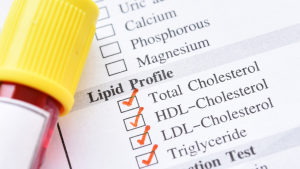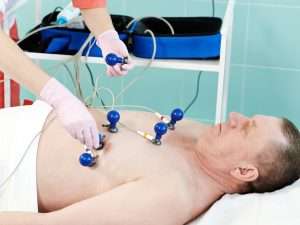Understanding POTS and Its Impact
Postural Orthostatic Tachycardia Syndrome (POTS) is a disorder of the autonomic nervous system that affects blood circulation and heart rate regulation. When standing, individuals with POTS experience an abnormal increase in heart rate that can trigger a variety of debilitating symptoms. Early recognition of these symptoms and timely medical intervention can significantly improve quality of life, particularly for those in the Dallas area.
POTS Symptoms You Shouldn’t Ignore
POTS symptoms can range from mild to severe, and some may require urgent medical evaluation:
Dizziness and Fainting
- Persistent Dizziness: Frequent lightheadedness or feeling unsteady when standing may indicate worsening autonomic dysfunction.
- Fainting Episodes: Recurrent syncope (fainting) can pose a serious risk of injury and should not be ignored.
Heart Rate Abnormalities
- Palpitations: A rapid, pounding, or irregular heartbeat—especially upon standing—can be a key warning sign.
- Chest Discomfort: Any associated chest pain should prompt further evaluation.
Chronic Fatigue and Weakness
- Persistent Exhaustion: Constant fatigue that interferes with daily activities, even after sufficient rest, is common.
- Muscle Weakness: Difficulty maintaining energy levels and overall muscle endurance can indicate the need for further assessment.
Shortness of Breath
- Respiratory Issues: Difficulty breathing, even with minimal exertion or at rest, may accompany POTS, adding to discomfort and anxiety.
Brain Fog and Cognitive Issues
- Memory and Concentration Problems: Cognitive disturbances, often described as “brain fog,” can affect work, learning, and overall mental clarity.
Exercise Intolerance
- Rapid Exhaustion: Worsening symptoms after even light physical activity can indicate underlying autonomic instability.
- Reduced Endurance: Inability to engage in regular physical activities may require a supervised exercise program.
Gastrointestinal Disturbances
- Digestive Problems: Nausea, bloating, irregular bowel movements, and abdominal discomfort can occur and affect nutritional intake and overall well-being.
Temperature Sensitivity
- Heat or Cold Intolerance: Unusually high sensitivity to temperature changes, including excessive sweating or cold extremities, can reflect poor circulatory regulation.
Tremors and Shakiness
- Involuntary Movements: Muscle tremors, shakiness, or sudden muscle spasms, particularly in cases of hyperadrenergic POTS, may be observed.
Mood and Anxiety Issues
- Emotional Instability: Heightened anxiety, mood swings, and even panic attacks are often linked to the dysregulation of the autonomic nervous system.
When to See a Doctor
You should seek medical attention if you experience any of the following:
- Interference with Daily Life: Symptoms that significantly disrupt work, school, or routine activities.
- Frequent Fainting: Recurrent fainting episodes that increase the risk of injury.
- Cardiac Symptoms: Persistent chest pain, irregular heartbeats, or palpitations.
- Severe Fatigue or Weight Loss: Extreme exhaustion or signs of malnutrition due to gastrointestinal issues.
- Worsening Cognitive Issues: Increasing brain fog or difficulty concentrating.
- Hydration Challenges: Inability to maintain hydration despite increased fluid intake.
- Progressively Worsening Symptoms: Any signs that your condition is deteriorating over time.
POTS Treatment at The Heartbeat Clinic
At The Heartbeat Clinic in Dallas, we offer specialized care for individuals with POTS. Our comprehensive approach includes:
Comprehensive Evaluation
- Advanced Diagnostic Tools: Tilt table testing, autonomic function testing, and 24-hour Holter monitoring help confirm a POTS diagnosis and assess its severity.
Personalized Treatment Plans
- Customized Care: We tailor treatment strategies to your unique symptom profile and needs, ensuring effective management of your condition.
Lifestyle and Dietary Recommendations
- Hydration and Salt Intake: Guidance on increasing fluid and salt consumption to help regulate blood volume.
- Personalized Exercise Programs: Carefully structured physical therapy to build cardiovascular endurance without triggering symptoms.
Medication Management
- Symptom-Specific Treatments: Medications to control heart rate abnormalities, regulate blood pressure, and stabilize autonomic function may be recommended.
Ongoing Support and Follow-Up
- Regular Monitoring: Continuous evaluation and adjustment of treatment plans ensure long-term symptom control.
- Patient Education: Empowering you with self-care strategies and lifestyle modifications for better daily management.
Conclusion
POTS can have a profound impact on daily life, but recognizing its symptoms early and seeking timely medical care can make a significant difference. Ignoring severe symptoms may lead to further complications. By working with a POTS specialist, you can receive personalized treatment and ongoing support to enhance your quality of life.
If you suspect you have POTS or are experiencing worsening symptoms, contact The Heartbeat Clinic in Dallas today to schedule a consultation and take the first step toward improved health.
Frequently Asked Questions (FAQs)
- What are the first signs of POTS?
Early signs often include dizziness upon standing, a rapid heart rate, chronic fatigue, and brain fog. - Can POTS symptoms get worse over time?
Yes, if left untreated or triggered by factors like dehydration or prolonged standing, symptoms may progressively worsen. - Is POTS a lifelong condition?
For some individuals, symptoms may improve over time with proper management; others might require long-term treatment. - What triggers POTS symptoms?
Common triggers include dehydration, heat, stress, prolonged standing, and certain medications. - Can POTS cause anxiety?
Yes, the dysregulation of the autonomic nervous system in POTS can lead to heightened anxiety and panic attacks. - What is the best way to manage POTS symptoms?
Management typically involves increased fluid and salt intake, tailored physical therapy, lifestyle modifications, and sometimes medications. - How is POTS diagnosed?
Diagnosis commonly involves tilt table testing, autonomic function testing, and 24-hour Holter monitoring. - Can children develop POTS?
Yes, POTS can affect children and adolescents, often worsening during growth spurts. - Does POTS affect sleep?
Many individuals with POTS report insomnia, frequent awakenings, or poor sleep quality. - When should I see a POTS specialist?
If your symptoms interfere with daily life, cause frequent fainting, or do not improve with lifestyle changes, it’s time to consult a specialist.
Disclaimer
This content is for informational purposes only and is not a substitute for professional medical advice. Always consult a qualified healthcare provider or POTS specialist for an accurate diagnosis and treatment recommendations.






